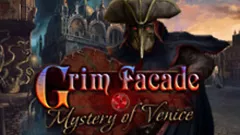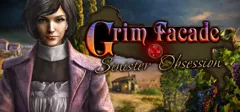Game Groups > Grim Facade series
Related Groups
- Dark Strokes series
- Game feature: Developer commentary
- Game feature: FMV / cutscene player
- Grim Legends series
- Grim Tales series
- LucasArts Classic / Collectors Series / Collection releases
- Protagonist: P.I. (Private Investigator)
- Setting: City - Florence
- Theme: Time travel
- Twin Mind series
11 Games [ view in game browser ] [ add game ]












